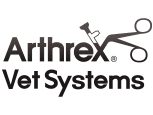Castration in small animal patients may be performed on a routine basis for population control and behavior modification or may be performed for disease control or treatment. Intact (non-castrated) pets that reproduce in an unregulated manner may lead to companion animal overpopulation. Overpopulation is a huge problem in most municipalities across the country, recognized by crowded humane animal shelters and rescue organizations.
Specific recommendations for castration associated disease control or treatment include patients suffering from:
- cryptorchidism (one or two undescended testicles)
- testicular hypoplasia/atrophy
- orchitis/epididymitis (infection)
- severe testicular trauma
- testicular/epididymal neoplasia (cancer)
- testicular torsion
- perineal hernia
- underlying urinary tract disease (urethral calculi)
- prostatic diseases
- perianal adenomas
The role of neutering pets and future development of certain cancers or orthopedic disease remains controversial. Limited evidence in determining the appropriate age to perform routine castration exists. Discussing the pros and cons of whether and the appropriate time to perform castration should be discussed with your veterinarian.
Patients presenting for routine castration for population control or behavioral modification will not demonstrate any clinical signs. However, animals with disease processes involving the testicles and/or epididymis may demonstrate clinical signs relating to the underlying disease process.
Patients suffering from cryptorchid testicles may demonstrate an abdominal mass on physical examination, which may cause clinical signs such as
- nausea
- pain
- anorexia
- weight loss
- vomiting
- diarrhea
- hair loss
- mammary gland enlargement
- bone marrow suppression
- sexual attraction by other male dogs
Clinical signs for testicular hypoplasia/atrophy will typically be absent unless there is an unsuppressed action of a cell type within the testicle, which may cause:
- hair loss
- mammary gland enlargement
- male dog attraction
Infection of the testicle and epididymis (orchitis/epididymitis) will typically show signs of:
- testicular pain
- scrotal swelling
- depression
- lethargy
- fever
- anorexia
Testicular trauma may demonstrate signs of:
- scrotal swelling and discoloration
- pain
- hemorrhage
- systemic signs of shock
Tumors of the testicles and epididymis will typically demonstrate:
- enlargement of one or both testicles
- pain
- hair loss
- mammary gland enlargement
- attraction of male dogs
Patients with testicular torsion will show clinical signs of:
- acute pain
- testicular swelling
- depression
Signs associated with perineal hernias consist of:
- swelling adjacent to the rectum
- constipation
- straining to defecate
- straining during urination
Signs associated with urethral calculi include:
- straining to urinate
- difficulty or inability to urinate
- discolored urine
- abdominal pain
- lethargy
- depression
- lack of appetite
Prostatic diseases will typically lead to enlargement of the prostate, which may cause:
- constipation
- straining to defecate
- abdominal pain
- straining to urinate
- discoloration of the urine
Patients with perianal adenomas may show signs of:
- one or more growths surrounding rectal tissue
- bloody stool
- irritation of the rectal area
Once your pet has been diagnosed with a suspected testicular or epididymal disease process, your primary care veterinarian may recommend a full metabolic work-up. A complete blood count, biochemical profile and urinalysis are performed to determine any evidence of concurrent illnesses or the effect of the testicular disease on bone marrow function. Abdominal and thoracic radiographs are indicated if there is suspicion of a neoplastic (cancer) process. Ultrasonography is useful to help determine the underlying disease process and its effects on adjacent abdominal organs. All patients with suspected infection of the testicle or epididymis should undergo culture of the urine and the diseased tissue, along with performing blood tests for Brucella canis, which is an important and potentially infectious disease of dogs and humans. Patients with any testicular or epididymal disease should have the tissues submitted for histological analysis to determine the underlying disease process and to direct future therapy.
Young, healthy patients presenting for routine elective castration need only a preliminary screening of blood work.
There are two classical methods for surgical castration. They consist of either an open or closed technique. The decision for either technique is based on the veterinarian’s or veterinary surgeon’s preference. Scrotal ablation (scrotum removal) may be discussed by the attending surgeon at the time of consultation. Reasons for scrotal ablation would include the presence of a large, pendulous scrotum at the time of castration or for the treatment of the primary disease (trauma, urethral calculi removal/relief of obstruction, and neoplasia). Treatment of perineal hernia, prostatic disease or perianal adenoma may require concurrent surgical procedures based on the attending surgeon’s recommendations.
Aftercare for the patient will consist of controlled leash walks for two weeks. Cold compresses and oral analgesics, such as non-steroidal anti-inflammatory drugs may be recommended, depending on the clinical picture. Surgical sutures are removed in 10–14 days after surgery. Some patients may be irritated by the surgical wound, thus necessitating the use of an Elizabethan collar.
The prognosis is excellent for a routine, elective castration. The prognosis for other disease processes depends on the underlying cause. Determining the appropriate time to perform castration on your pet should be discussed with your veterinarian.












